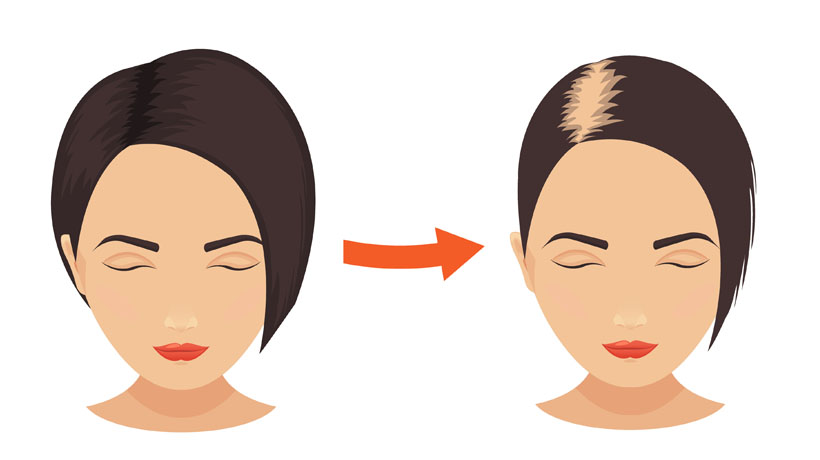Looking at popular depictions of women in modern media, you’ll find women with thick, luscious strands that frame an equally radiant face. This is a very different look from women who may be suffering from undiagnosed diseases that lead to hair loss, among other side effects. Your hair can be the best indicator of your health status, and if you notice large clumps coming out when you brush or run your fingers through your hair, it’s a clear sign that something has changed in your body.
While occasional hair loss is normal, significant hair loss can also be the precursor to discovering the onset of a serious disease. Here are five alarming causes of hair loss that every woman should know.
Alopecia areata
The loss of hair itself is referred to as alopecia, and alopecia areata is an autoimmune disease where the immune system attacks healthy hair follicles and causes balding in certain areas. The condition can result in total hair loss, called alopecia universalis, and it can prevent hair from growing back. It can also develop slowly and recur after years between instances. While there’s currently no cure for alopecia areata, there are treatments that may help hair grow back more quickly and that can prevent future hair loss.
Lupus
One serious cause of lots of hair loss is lupus. This condition is an autoimmune disease where the body attacks itself and triggers severe fatigue and joint pain. Some people experience hair loss as one of the first signs of lupus, and it is a common symptom of the body attacking itself since it can attack healthy hair follicles. Hair can become brittle and shed in one or multiple places, and people may also experience thinning of the beard, eyebrows, eyelashes, and other body hair. In particular, discoid lupus erythematosus, a type of lupus that causes heavy scarring on the skin, can result in the formation of scar tissue on the scalp and hair can no longer grow in that area.
Underactive thyroid
Also known as hypothyroidism, this is where the thyroid gland does not produce enough hormones. It affects 15 in every 1,000 women, and along with weight gain, depression and tiredness, losing hair may be a symptom. Fortunately, after blood tests point to this reason, it is easily treatable by taking daily hormone tablets.
Lichen planopilaris
Lichen planopilaris, a type of alopecia, occurs when a common skin condition, called lichen planus, affects the scalp. This is just one of many types of alopecia that can occur, but lichen planopilaris may cause a dry, flaky rash to appear on the skin that causes hair on the scalp to fall out in clumps. The scalp may also become red, irritated, and covered in small white or red itchy, painful, or burning bumps. Lichen planopilaris is not common and affects more women than men.
Cancer
Cancer treatment like chemotherapy is known to have the side effect of hair loss. However, a thinning mane may be a sign of certain types of cancer in the first place. Hodgkin’s lymphoma which is a rare cancer that develops in the lymphatic system is one example. Common symptoms of the potentially deadly condition include persistent fatigue, fever and painless swelling of lymph nodes in your neck, armpits or groin, according to the Mayo Clinic. Along with excessive sweating, skin flushing and neck pain, there may be significant hair loss.
Sources:
https://www.express.co.uk/life-style/health/892998/hair-loss-treatment-causes-cure-cancer
https://www.healthline.com/health/alopecia-areata#alongside-other-conditions
https://nyulangone.org/conditions/hair-loss/types



